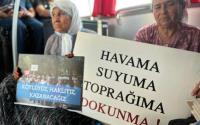1 January 2008The Guardian
Let me dwell for a moment on what Guthrie said, for he appears to advocate that we retain the right to commit war crimes. States in dispute with each other, the UN charter says, must first seek to solve their differences by "peaceful means" (article 33). If these fail, they should refer the matter to the security council (article 37), which decides what measures should be taken (article 39). Taking the enemy by surprise is a useful tactic in battle, and encounters can be won only if commanders are able to make decisions quickly. But either Guthrie does not understand the difference between a battle and a war - which is unlikely in view of his 44 years of service - or he does not understand the most basic point in international law. Launching a surprise war is forbidden by the charter.
It has become fashionable to scoff at these rules and to dismiss those who support them as pedants and prigs, but they are all that stand between us and the greatest crimes in history. The International Military Tribunal at Nuremberg ruled that "to initiate a war of aggression ... is not only an international crime; it is the supreme international crime". The tribunal's charter placed "planning, preparation, initiation or waging of a war of aggression" at the top of the list of war crimes.
If Britain's most prominent retired general does not understand this, it can only be because he has never been forced to understand it. In September 2002, he argued in the Lords that "the time is approaching when we may have to join the US in operations against Iraq ... Strike soon, and the threat will be less and easier to handle. If the UN route fails, I support the second option." No one in the chamber warned him that he was proposing the supreme international crime. In another Lords debate, Guthrie argued that it was "unthinkable for British servicemen and women to be sent to the International Criminal Court", regardless of what they might have done. He demanded a guarantee from the government that this would not be allowed to happen, and proposed that the British forces should be allowed to opt out of the European convention on human rights. The grey heads murmured their agreement.
Perhaps it is unfair to single out the noble and gallant lord. The British establishment's exceptionalism is almost universal. According to the government, both the Commons public administration committee and the Lords constitution committee recognise that decision-making should "provide sufficient flexibility for deployments which need to be made without prior parliamentary approval for reasons of urgency or necessary operational secrecy". You cannot keep an operation secret from parliament unless you are also keeping it secret from the UN.
Tebbit appears to have a general aversion to disclosure. In 2003, the Guardian obtained letters showing he had prevented the fraud squad at the MoD from investigating allegations of corruption against the arms manufacturer BAE, that he tipped off the BAE chairman about the contents of a confidential letter the Serious Fraud Office had sent him, and that he failed to tell his minister about the SFO's warnings. In October 2003, under cross-examination during the Hutton inquiry into the death of the government scientist David Kelly, he revealed the decision to name Kelly was made in a "meeting chaired by the prime minister". That could have been the end of Tony Blair, but a week later Tebbit sent Lord Hutton a written retraction of his evidence. No one bothered to tell parliament or the press; the retraction was made public only when the Hutton report was published, three months later. Blair knew all along, and the secret gave him a crushing advantage.
The discussion also reveals that Guthrie and Tebbit appear to have learned nothing from the disaster in Iraq. They are not alone. Just before he stepped down last year, Blair wrote an article for the Economist headlined "What I've Learned". He had discovered, he claimed, that his critics were both wrong and dangerous and that his decisions, based on "freedom, democracy, responsibility to others, but also justice and fairness", were difficult but invariably right. He called his article "a very short synopsis of what I have learned". I could think of an even shorter one.
We have yet to hear one word of regret or remorse from any of the main architects - Blair, Brown, Straw, Hoon, Campbell and their principal advisers - of Britain's participation in the supreme international crime. The press and parliament appear to have heeded Blair's plea that we all "move on" from Iraq. The British establishment has a unique capacity to move on, and then to repeat its mistakes. What other former empire knows so little of its own atrocities?
When people call our unwritten constitution a "gentleman's agreement", they reveal more than they intend. It allows the unelected gentlemen who advise the prime minister to act without reference to the proles. Britain went to war in Iraq because the public and parliament were not allowed to know when the decision was made, what the intelligence reports said, and what the attorney general wrote about the its legality. Had the truth not been suppressed, Britain could never have attacked Iraq.
Real constitutional reform requires much more than the timid proposals in the green paper on the governance of Britain, which are likely to appear in a bill in a few weeks' time. Yes, parliament should be allowed to vote on whether to go to war, yes the royal prerogative should be rolled back. But the prime minister, his diplomats, civil servants and generals would still decide which wars parliament needs to know about, which crimes could be secretly committed in our name. Real constitutional reform means not only handing power to parliament but also confronting the power of the hard, unaccountable people who act as if it is their birthright.






